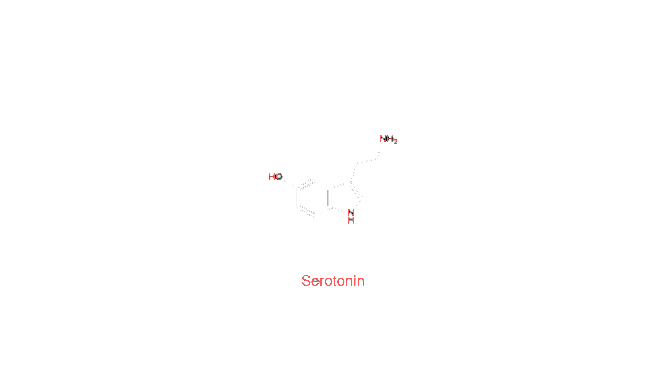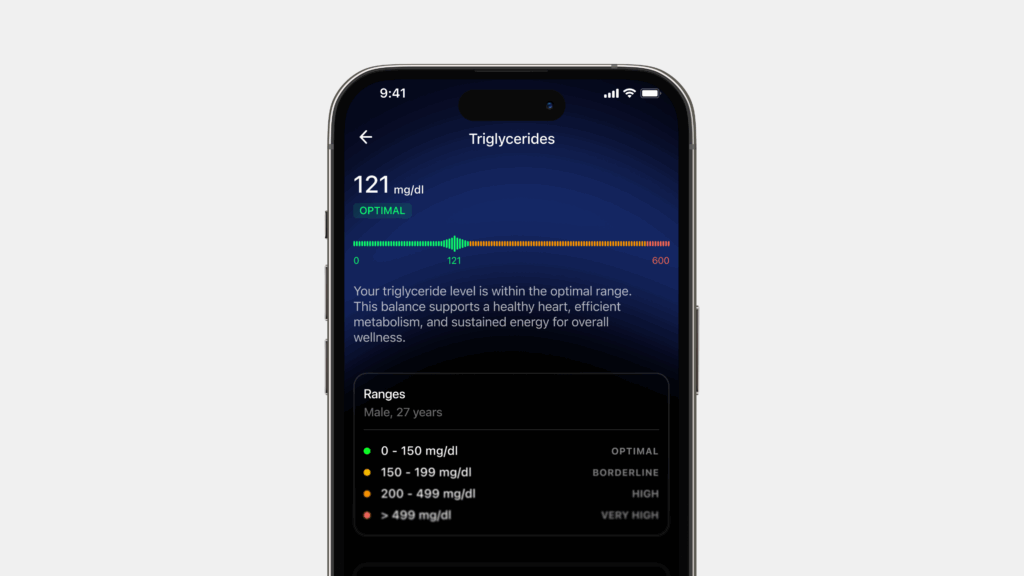Serotonin, known as one of the happy hormones, plays an important role in regulating mood, digestion, appetite, sleep, learning ability, and memory. This mood-stabilizing hormone also functions as a neurotransmitter in the nervous system, transmitting signals from one area of the brain to another. If the brain produces too much serotonin, it could lead to excessive nerve cell activity. Too little serotonin, on the other hand, can lead to depression and anxiety.

Highlights
- It is estimated that approximately 90% of the body’s serotonin is made in the digestive tract,
- Serotonin influences the speed with which food moves through the system, the fluid released by the intestines and it is also involved in sending messages to the brain about nausea, pain, or bloating,
- increasing synaptic bioavailability of serotonin produces an anorexigenic effect which means it reduces appetite, resulting in lower food consumption, leading to weight loss.
How and where is Serotonin produced?
Serotonin is synthesised through a unique biochemical conversion process. The first step involves the essential amino acid tryptophan, a building block of proteins. L-tryptophan is converted into L-5OH-tryptophan, which in turn is developed into serotonin. It is estimated that approximately 90% of the body’s serotonin is made in the digestive tract. This explains the popular phrase that describes serotonin as ‘the brain in the gut.’ In fact, evolving research confirms links between gut microbes and the production or stimulation of serotonin production.
Before the last decade, the idea of the gut and what we eat are linked to mental health was considered incredulous. However, numerous studies have now strengthened the correlation between certain microbiome markers and depression. A study led by Jeroen Raes found that some levels of two groups of gut bacteria were “consistently depleted” in people with depression. It is important to note that this is correlation and not causation. We are yet in a very nascent stage of research to concretely determine the facets of how gut microbiomes function in the regulation of various neurotransmitters, including serotonin.

Functions of Serotonin
Serotonin is shown to regulate and play a key role in a variety of bodily functions.
1. Digestion: Serotonin influences the speed with which food moves through the system, the fluid released by the intestines and it is also involved in sending messages to the brain about nausea, pain, or bloating. Serotonin helps control your bowel movements and function. When you consume food that is noxious or upsetting, the production of serotonin rises to push it out in the form of diarrhea or vomiting. The muscles in the rectums of people suffering from IBS are less responsive to serotonin.
2. Mood: Studies on serotonin in the brain suggest that it modulates anxiety, happiness, and mood. Low levels of serotonin have been linked with depression.
3. Sleep: The parts of the brain that command waking and slumber have serotonin receptors but the role of serotonin in sleep itself is still contested by the research community. An antecedent to melatonin, the hormone that plays a vital role in the functioning of the sleep cycle, serotonin aids sleep by producing melatonin.
4. Blood clotting: The formation of blood clots is important for healing wounds. Clotting prevents excessive bleeding when a blood vessel is injured. Studies have shown that serotonin plays a key role in blood coagulation.
5. Bone health: Studies suggest serotonin affects bone density. Extremely high levels of serotonin can put the bones at risk, making them weaker and leading to osteoporosis, according to a study.
6. Sexual function: When there is less serotonin in the body, increased libido has been reported, while higher levels of serotonin can lead to lower libido in men. Some studies on women also suggest similar effects. Conversely, increasing synaptic bioavailability of serotonin produces an anorexigenic effect which means it reduces appetite, resulting in lower food consumption, leading to weight loss.
Serotonin’s role in metabolism and obesity
Research connects serotonin with food intake, energy expenditure, hormone balance, and nutrient metabolism. Increasing concerns over the health crisis of obesity and diabetes have led to a renewed interest in serotonin pathways in the treatment of metabolic disease.
Over the past several decades, multiple studies have established the role of serotonin in reducing food intake and promoting satiety. For instance, inhibition of serotonin is orexigenic. This simply means that serotonin restriction could lead to an increase in appetite and hunger, which can enhance food consumption, and in extreme cases, it may lead to obesity.

According to Judith J. Wurtman, PhD, co-author of The Serotonin Power Diet: Eat Carbs — Nature’s Own Appetite Suppressant — to Stop Emotional Overeating and Halt Antidepressant-Associated Weight Gain, successful weight loss depends on the power of serotonin to control food intake. She calls it nature’s own appetite suppressant. Central serotonin (produced in the central nervous system) puts brakes on appetite, reducing nutrient intake and peripheral serotonin promotes nutrient storage by facilitating absorption.
Studies suggest that serotonin (5-HT) modulates energy homeostasis via numerous pathways. In particular, studies in mice underscore the critical role of serotonin receptors in neurons for regulating food intake and in hepatic (liver) glucose metabolism. Research corroborates that both gut-derived circulating serotonin and adipocyte-derived serotonin are instrumental in adipose tissue function.
Four natural ways to increase Serotonin
Outside of Selective Serotonin Reuptake Inhibitors (SSRI), there are a number of natural ways to boost serotonin levels
1. Bright light exposure: Sunshine or light therapy are usually recommended remedies for treating seasonal depression, studies suggest that it can increase serotonin levels.
2. Workout: Regular workouts and exercise can have positive mood-altering effects as per a study.
3. Nutrition: Good nutrition can help regulate and promote serotonin levels. Foods that can increase serotonin levels include eggs, cheese, turkey, nuts, salmon, tofu, and pineapple.
4. Meditation: Meditation can help reduce stress leading to a spike in serotonin levels.
Conclusion
Serotonin is an important hormone involved in various bodily functions such as mood, sleep, sexual function, bone health, and blood clotting. Research is still underway to determine the role gut microbes play in the production of serotonin. Studies so far have demonstrated that an unhealthy gut and depression have a correlation. Its regulatory role in appetite and glucose metabolism has a large impact on the body’s weight management mechanisms and overall metabolic health.
Disclaimer: The contents of this article are for general information and educational purposes only. It neither provides any medical advice nor intends to substitute professional medical opinion on the treatment, diagnosis, prevention or alleviation of any disease, disorder or disability. Always consult with your doctor or qualified healthcare professional about your health condition and/or concerns before undertaking a new healthcare regimen including making any dietary or lifestyle changes.
References
- Emerging Roles for Serotonin in Regulating Metabolism: New Implications for an Ancient Molecule | Endocrine Reviews | Oxford Academic
- Serotonin Metabolism – an overview | ScienceDirect Topics
- Serotonin Synthesis and Metabolism
- https://www.healthline.com/health/mental-health/serotonin#serotonin-boosters
- Brain Hormones | Endocrine Society.







